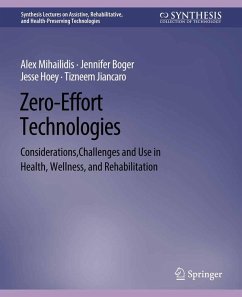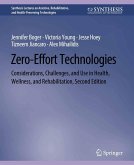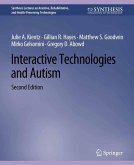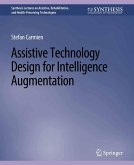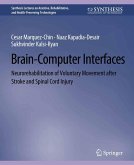This book introduces zero-effort technologies (ZETs), an emerging class of technology that requires little or no effort from the people who use it. ZETs use advanced techniques, such as computer vision, sensor fusion, decision-making and planning, and machine learning to autonomously operate through the collection, analysis, and application of data about the user and his/her context. This book gives an overview of ZETs, presents concepts in the development of pervasive intelligent technologies and environments for health and rehabilitation, along with an in-depth discussion of the design principles that this approach entails. The book concludes with a discussion of specific ZETs that have applied these design principles with the goal of ensuring the safety and well-being of the people who use them, such as older adults with dementia and provides thoughts regarding future directions of the field. Table of Contents: Lecture Overview / Introduction to Zero Effort Technologies / Designing ZETs / Building and Evaluating ZETs / Examples of ZETs / Conclusions and Future Directions
Dieser Download kann aus rechtlichen Gründen nur mit Rechnungsadresse in A, B, BG, CY, CZ, D, DK, EW, E, FIN, F, GR, HR, H, IRL, I, LT, L, LR, M, NL, PL, P, R, S, SLO, SK ausgeliefert werden.

